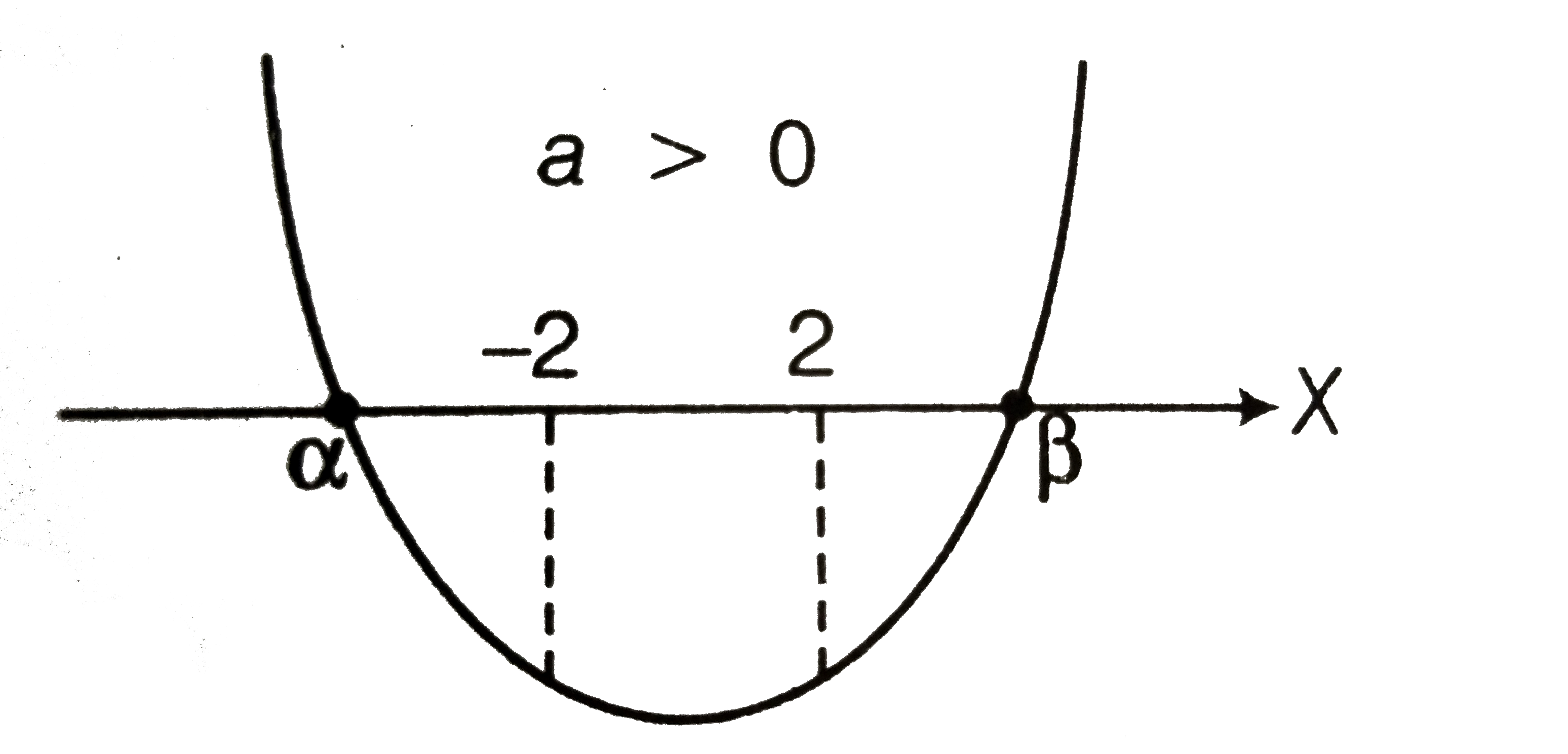If the equation has two roots and such that and , then Solution in Punjabi
The correct Answer is:A, C, D
Here

or …… i and
..ii
………iii
………..iv
………v
...............vi
From Eqs i and ii we get
From Eqs. (iii) and (iv) we get
and from Eqs (v) and (vi) we get
Topper's Solved these Questions
- THEORY OF EQUATIONSBOOK - ARIHANT MATHSCHAPTER - THEORY OF EQUATIONSEXERCISE - Exercise (Passage Based Questions)
21 Videos
- THEORY OF EQUATIONSBOOK - ARIHANT MATHSCHAPTER - THEORY OF EQUATIONSEXERCISE - Exercise (Single Integer Answer Type Questions)
10 Videos
- THEORY OF EQUATIONSBOOK - ARIHANT MATHSCHAPTER - THEORY OF EQUATIONSEXERCISE - SCQ_TYPE
1 Videos
- THE STRAIGHT LINESBOOK - ARIHANT MATHSCHAPTER - THE STRAIGHT LINESEXERCISE - The Straight Lines Exercise 8 : (Questions Asked in Previous 13 years Exams)
1 Videos
- THREE DIMENSIONAL COORDINATE SYSTEMBOOK - ARIHANT MATHSCHAPTER - THREE DIMENSIONAL COORDINATE SYSTEMEXERCISE - Three Dimensional Coordinate System Exercise 12 : Question Asked in Previous Years Exam
2 Videos
Similar Questions
If G and L are the greatest and least values of the expression2x2−3x+22x2+3x+2,xεR respectively.
The least value of G100+L100 is
View SolutionThe sum of all the real roots of the equation |x−2|2+|x−2|−2=0 is
View SolutionFrom the graph of a quadratic polynomial y=ax2+bx+c,a,b,εR , Find its vertex, roots and D.
View SolutionSolve the following system of inequalities graphically
x+5y≤25,2x+2y≥2,2x−2y≤0,x≥0,y≥0
View SolutionConsider the line L1:x−12=y−1=z+31,L2:x−41=y+31=z+32 find the angle between them.
View SolutionIf alpha and beta be the roots of the equation ax^(2)+bx+c=0 then equation whose roots are alpha+beta and alpha beta is
View SolutionIf alpha,beta are the roots of ax^(2)+bx+c=0, the equation whose roots are 2+alpha,2+beta is
View SolutionIf alpha,beta are roots of the equation ax^(2)-bx-c=0, then alpha^(2)-alpha beta+beta^(2) is equal to-
View SolutionIf αβ(α<β) are two distinct roots of the equation. ax2+bx+c=0, then
View SolutionTwo roots of the equation ax^2 +bx +c=0 is alpha,beta then find the value of alpha^2 + beta^2
View SolutionIf 0<a<b<cand the roots α,β of the equation ax2+bx+c=0 are imaginary, then
View SolutionIf the equation ax2+bx+c=0(a>0) has two roots α and β such that α < -2andbeta>2, then
View SolutionIF α,β are the roots of ax2+bx+c=0 then the equation roots are α/β,β/α is
View SolutionIF α,β are the roots of ax2+bx+c=0 then the equation whose roots are 2+α,2+β is
View SolutionIf the equation ax^(2)+bx+c=0 (a lt 0) has two roots alpha and beta such that alpha lt -3 and beta gt 3 , then
View SolutionIf α and β(α<β) are two different real roots of the equation ax2+bx+c=0 then
View Solution
